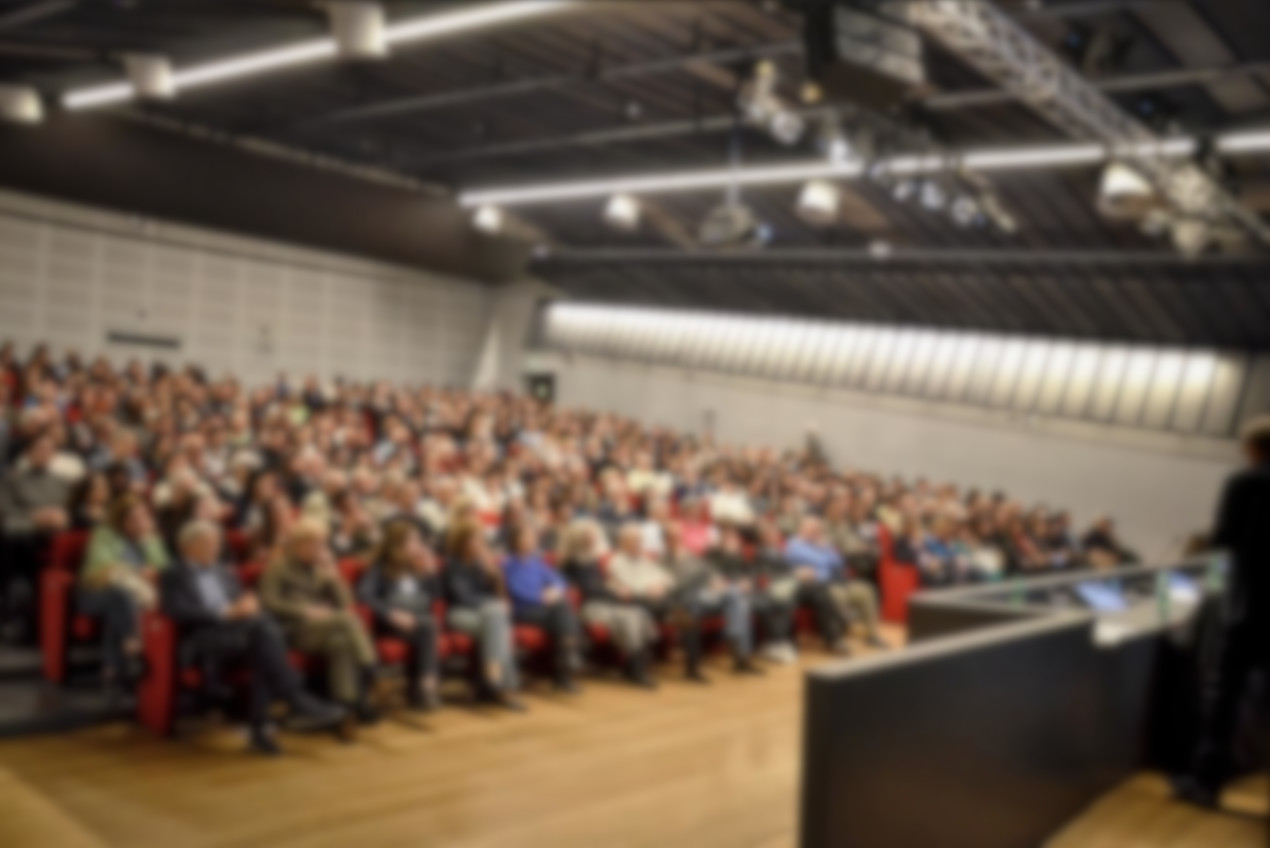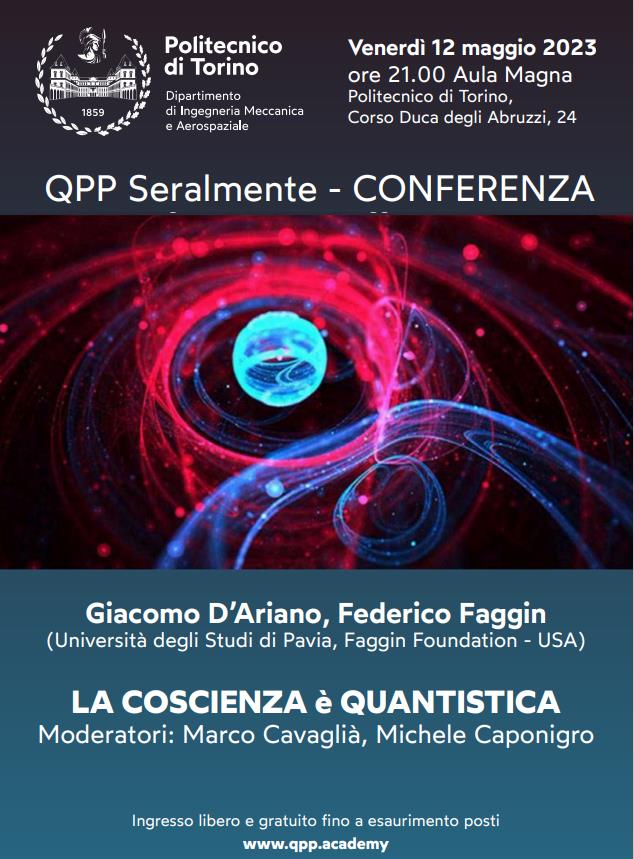
![]() Conference Venue: Giovanni Agnelli Lecture Hall, Polytechnic University of Turin, Corso Duca degli Abruzzi, 24, Turin
Conference Venue: Giovanni Agnelli Lecture Hall, Polytechnic University of Turin, Corso Duca degli Abruzzi, 24, Turin
![]() Organized by QPP Seralmente in collaboration with M3B Lab of the Department of Mechanical and Aerospace Engineering (Polytechnic University of Turin)
Organized by QPP Seralmente in collaboration with M3B Lab of the Department of Mechanical and Aerospace Engineering (Polytechnic University of Turin)
![]() Participation Certificate: Issued upon request
Participation Certificate: Issued upon request
![]() Free admission, open to everyone, subject to seat availability
Free admission, open to everyone, subject to seat availability
![]() Reservation recommended
Reservation recommended
Giacomo D’Ariano
University of Pavia
Giacomo Mauro D’Ariano is full professor at the University of Pavia, where he teaches Foundations of Quantum Theory and Quantum Information. In Pavia he created the research group QUIT (Quantum Information Theory), a worldwide leading group in the field. He started Quantum Information in Italy, where he created a school that spread young disciples and scholars around the world. Fellow of theOptical Society of America, he is member of the Center for Photonic Communication and Computing at Northwestern University in Illinois, with which is regularly collaborating since 1994. Giacomo Mauro D’Ariano has been national coordinator of 5 Italian projects PRIN, and local PI of numerous other Italian and European projects. He has been organizer of large conferences in relevant international institutions (including MIT, Northwestern University, Scuola Normale Superiore di Pisa), member of dozens of international steering and advisory scientific committees, he is currently President of the Steering Committee of QCMC Conferences, one of the most prominent series of conferences in Quantum Information that has been run in all continents since 1990. With almost 300 published papers on peer-reviewed journals (105 on APS Journals, 30 PRL) and books (Google Scholar h=40, 5800 citations) and more than 170 invited talks, in his scientific journey D’Ariano has coordinated his team of students as a single brain, extracting new teaching from research, and producing new research from the teaching, in a relentless progress of the conceptual apparatus of Quantum Mechanics. He is popular for his work on quantum tomography—a field that he initiated and developed his first exact technique, now very popular, of quantum homodyne tomography. He generalized the technique–originally devised for optics–to a truly universal measurement method, conceiving and developing the first experimental schemes based on entanglement for the quantum characterization of transformations and apparatuses. He is well recognized for his numerous contributions to the theory of quantum measurements, where he introduced novel methods and solved long-standing problems (e.g. the optimal phase-estimation and broadcasting of mixed states), proposed new optical devices and experimental schemes for high sensitivity measurements, along with new measurements for experimental tests of quantum mechanics, novel theoretical approaches to quantum cloning and processing of quantum information. With his disciples P. Perinotti and G. Chiribella he introduced the powerful notions of “quantum comb”, which generalizes the notions of channel and POVM, with a range of applications, from measurement optimization, to quantum protocols, to computing, and even to foundations of Quantum Mechanics. In the last decade D’Ariano got much interest in the community for his new operational axiomatic framework for Quantum Theory, which has been subject of dozens of invited talks, and recently lead to the first information-theoretic axiomatization of Quantum Theory coauthored with G. Chiribella and P. Perinotti, Very recently he opened a very promising Quantum Cellular Automata framework for Quantum Field Theory, which got numerous invited talks and colloquia, including prominent Research Labs in particle physics (Fermilab and Frascati). In his early research years D’Ariano has worked in Statistical Mechanics and phase transitions, along with exact solutions of many body quantum problems, issues that now reconnect with the Quantum Automata of the most recent work. Finally, D’Ariano has collaborated and co- published with more than sixty different scientists in dozens of different institutions worldwide. His group QUIT receives many tens of visitors each year.
For more details see http://www.qubit.it Prof. Giacomo D’Ariano (Università di Pavia).
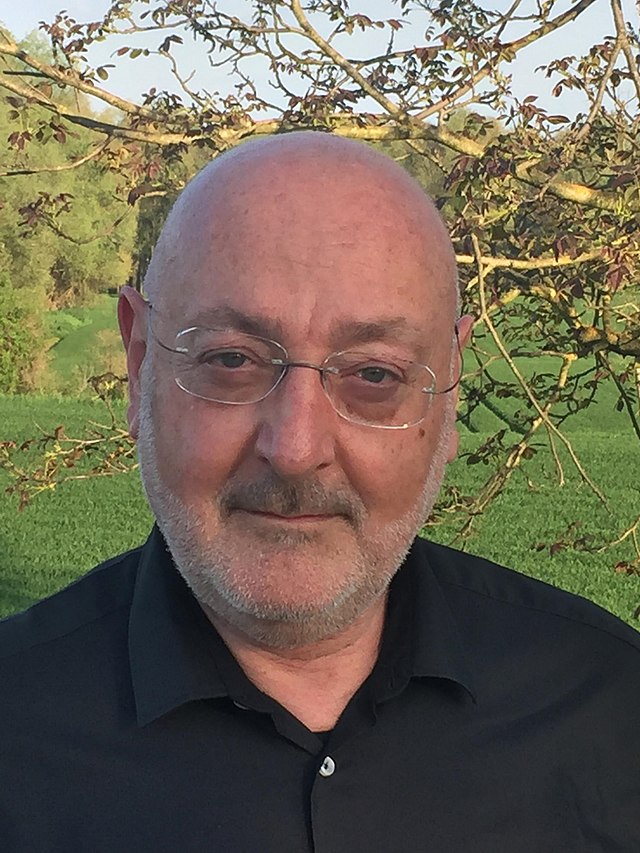
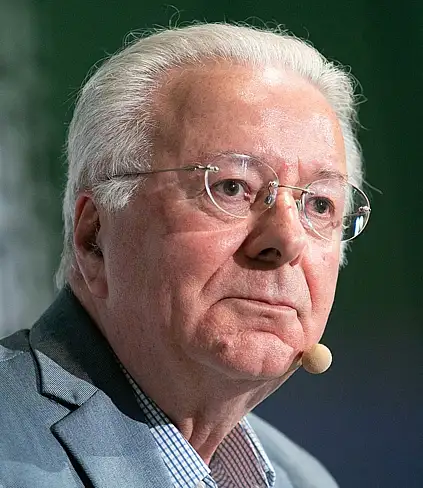
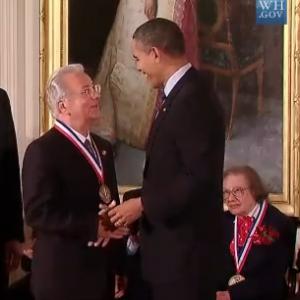
Federico Faggin
Physicist, co-founder and Ceo of Zilog, Cygnet Technologies and Synaptics.
Federico Faggin was born in Vicenza. He graduated with honors in Physics from the University of Padua in 1965. Faggin moved to the United States in 1968 to work with Fairchild Semiconductor, where he led the development of MOS Silicon gate technology, a leading technology adopted worldwide and the basis for all modern integrated circuit technologies.
While working for Intel between 1970 and 1974, Faggin designed many products, including the world’s first microprocessor, the Intel 4004, as well as the microprocessors 8008, 8080, and 4040.
In 1974, Faggin began his career as an entrepreneur and co-founded several startup companies. These include Zilog, Inc., for which Faggin developed the Z80 microprocessor and served as President and CEO until 1980; Synaptics, Inc., which introduced touch pad and touch screen technologies now universally used in mobile devices. Faggin served as President and CEO of Synaptics from 1987 to 1999 and as Chairman of the Board from 1999 to 2008.
Faggin is currently the President of the “Federico and Elvia Faggin Foundation,” a non-profit organization dedicated to the scientific study of Consciousness. He has received many international awards, including the 1997 Kyoto Prize and, in 2009, the “National Medal of Technology and Innovation” awarded by President Barack Obama.
Dr. Marco Cavaglià is currently engaged as a Researcher in Industrial Bioengineering at the Department of Mechanical and Aerospace Engineering at the Polytechnic University of Turin (POLITO), dedicating his studies to innovative research on the state of consciousness, with a particular focus on general anesthesia as a research model. His current research focuses on understanding the molecular mechanisms that regulate brain functions, with a specific interest in the role of lipids in neuronal membranes and their impact on neural dynamics. This area of study promises to open new perspectives on neuroprotection, neuroplasticity, and neurodegenerative diseases. With a basic education in Medicine and Surgery obtained at the University of Turin, and a specialization in Anesthesia and Resuscitation, Dr. Cavaglià has consolidated his career through significant clinical and research experiences, including the direction of the pediatric cardio-surgical program at the Aldo Castaneda Institute in Switzerland. His academic path was enriched by a profound research experience at the Cleveland Clinic Foundation in the USA and by obtaining a Ph.D. from the University of Insubria in Varese. Beyond his research, Dr. Cavaglià serves as an Assistant Professor, actively contributing to teaching in the master courses of Rational Drug Design, covering functional chemistry topics, and in Biomechanical Design, focusing on cellular molecular physiology and an introduction to neuroscience. This blend of teaching and research highlights his commitment to educating the next generations of scientists and bioengineers, providing them with the skills to tackle future challenges in bioengineering and medicine. In his current role, Dr. Cavaglià actively engages in the university’s “third mission,” promoting scientific dissemination and public education through organizing conferences with the QPP Seralmente association. This commitment reflects his dedication not only to research and clinical practice but also to open dialogue with society, to share scientific discoveries and stimulate greater awareness of brain health.
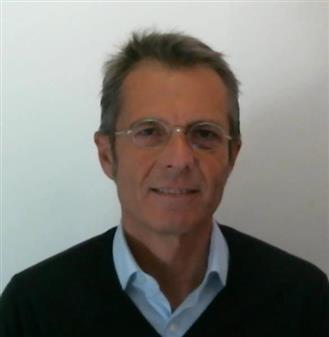
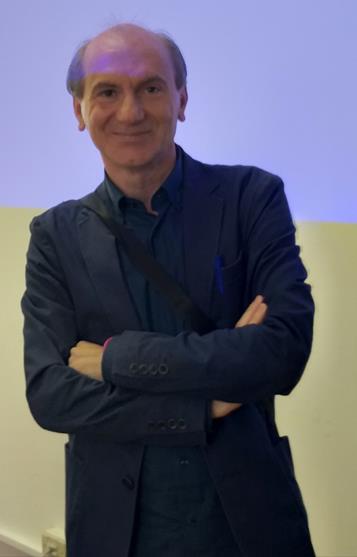
Dr. Michele Caponigro
Dopo la Laurea in Fisica,
ha ottenuto un dottorato in Fisica,
un secondo in Epistemologia della Complessità
ed un terzo in Filosofia della Scienza.
La sua area di ricerca sono i Fondamenti della Meccanica Quantistica, le Interpretazioni della Meccanica Quantistica e la Filosofia della Fisica.
Fa parte del centro di ricerca dell’Università di Bergamo ISHTAR (Indeterminism in Sciences and Historico-philosophical, Transdisciplinary Advanced Research Center).
Dal 2012 si interessa di Divulgazione della Scienza al grande pubblico attraverso l’organizzazione di numerose conferenze interdisciplinari sulla ricerca d’avanguardia.


